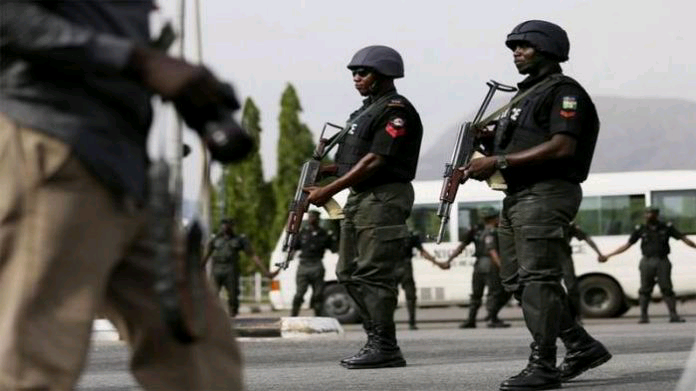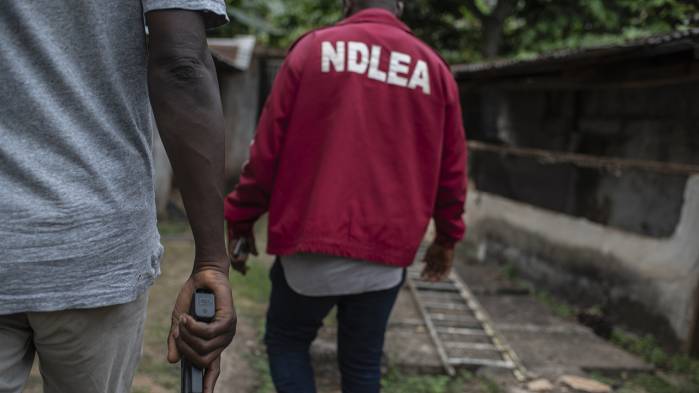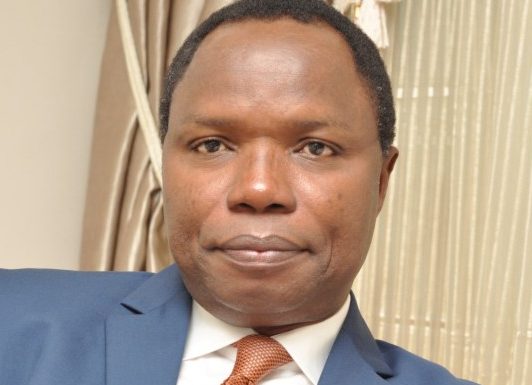Six men who allegedly made fortunes from buying and selling vulnerable migrants have been hit by United Nations sanctions in an unprecedented response to the international slave trade exposed by CNN.
Reports quoting the Dutch foreign ministry said four Libyans and two Eritreans are accused of leading criminal networks that traffic vast numbers of vulnerable migrants through Libya to Europe.
Strikingly, one of them is a commander with the Libyan Coast Guard, whose efforts to stem the flow of migrants are supported in part by funding from the European Union.
He is accused of using firearms to deliberately sink boats carrying migrants.
Another is accused of having longstanding links with ISIS and is known for “cultivating relationships with terror groups,” according to CNN.
Others in the group are accused of selling migrants as “sex slaves” and being responsible for some of the worst migrant boat disasters in the Mediterranean.
The motion for sanctions was filed to the UN Security Council’s Libya sanctions committee by The Netherlands, supported by France, Germany, the United Kingdom and the United States.
It followed a months-long investigation by a panel of UN experts.
Russia put a “technical hold” on the motion in May and requested more evidence, but dropped its objection on Thursday.
It’s the first time the committee has slapped international sanctions on individuals for human trafficking.
Dutch prosecutors describe the men as ostentatious with their wealth and acting with impunity.
“The sanctioned individuals are young, mostly 30-something, and people who really want to spend their money; on their militia, their business, but also on properties and goods all over the world. They feel untouchable,” the Dutch Prosecutor’s Office said in a statement.
US to send 1,600 immigration detainees to federal prisons
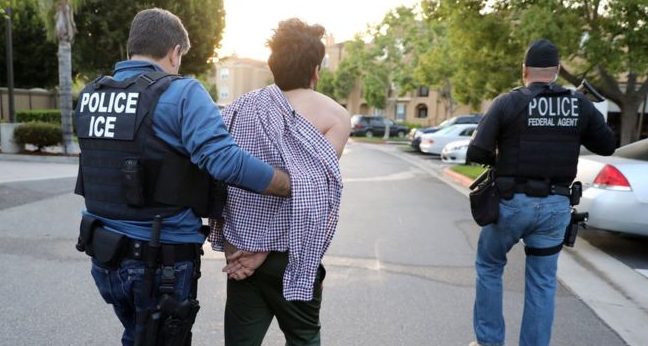
The Trump administration has for the first time begun transferring suspected illegal immigrants to federal prisons, following additional demand for beds.
The transfer of 1,600 detainees underscores the surge in detentions under the President Trump’s “zero tolerance” immigration policy.
US Immigration and Customs Enforcement (ICE) said it was a temporary measure until other facilities could be found.
Some 1,000 of the detainees will go to a single prison in California.
Union leaders at prisons in California, Texas, and Washington state told the Reuters news agency they had little time to prepare for the large intake of detainees, and raised concerns about staffing and safety.
ICE is enacting a policy that requires federal prosecutors to criminally charge everybody caught illegally crossing the border.
Under previous administrations, first-time border crossers were usually put through civil deportation proceedings.
Detainees awaiting civil hearings are usually housed in ICE detention facilities or county jails.
The 1,600 detainees transferred to prisons are expected to be there for 120 days while ICE finds space in new detention facilities, a spokeswoman for the agency said.
“Our federal prisons are set up to detain the worst of the worst. They should not be used for immigration purposes,” Ali Noorani, executive director of the National Immigration Forum, told Reuters.
“Federal prisons are for hardened criminals. They are not physically set up for immigrant landscapers looking for a job or fleeing violence,” Mr Noorani said.
ICE has attracted heavy criticism amid a crackdown on both illegal border crossings and people seeking asylum in the US.
The Trump administration was recently forced to defend its stance on migrant children after it emerged that hundreds had been removed from their families.
Red Cross pulls 71 foreign staff out of Yemen over security risks

The International Committee of the Red Cross (ICRC) has pulled 71 of its international staff out of Yemen because of rising security threats.
Some 450 ICRC employees remain in Yemen, including dozens of expatriate staff, spokeswoman Marie-Claire Feghali said.
The aid agency urged all sides in the country’s three-year war to provide security guarantees so its staff could keep running surgical, water and food assistance programmes, which it said had been “crippled” by the partial evacuation.
The ICRC is calling on all parties to the conflict to provide it with concrete, solid and actionable guarantees so that it can continue working in Yemen.
The agency said moving the majority of its staff to Djibouti was due to high risks in the war-torn country.
An ICRC employee, a Lebanese national, was killed on April 21 by an unknown gunmen who opened fire on his car in the southwestern Yemeni city of Taiz as he was on his way to visit a prison, it said at the time.
“Our current activities have been blocked, threatened and directly targeted in recent weeks, and we see a vigorous attempt to instrumentalise our organisation as a pawn in the conflict,” the ICRC said in a statement.
“While the Yemen delegation has received numerous threats in the past, we cannot now accept additional risk less than two months after a gunman killed a staff member. The security of our staff, who are being intimidated by parties to the conflict, is a non-negotiable prerequisite for our presence and work in Yemen and an absolute priority,” the statement added.
READ ALSO: FOREIGN TITBITS: Guatemala volcano: Emergency agency ‘failed to heed warnings’
Boris Johnson ‘warns of Brexit meltdown’
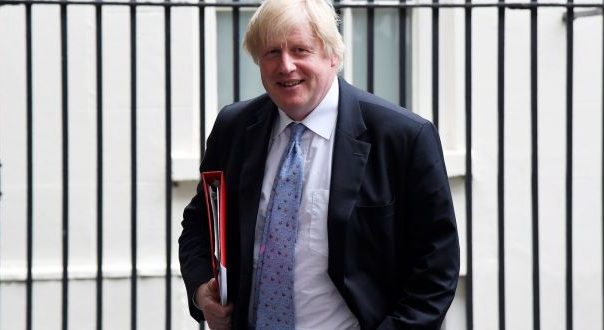
Boris Johnson reportedly warned there may be a Brexit “meltdown” in comments made at a private dinner this week.
The British foreign secretary also referred to the Treasury as the “Heart of Remain,” according to a report by Buzzfeed.
In recorded comments to the campaign group, Conservative Way Forward, he also reportedly said he was “increasingly admiring of Donald Trump.”
Friends of Mr. Johnson said they were disappointed remarks made at a private event had been covertly recorded.
The foreign secretary was apparently speaking to a group in a private room after an Institute of Directors reception on Wednesday night.
According to Buzzfeed, he said that the prime minister was “going to go into a phase where we are much more combative with Brussels.”
He reportedly added: “You’ve got to face the fact there may now be a meltdown. OK? I don’t want anybody to panic during the meltdown. No panic. Pro bono publico, no bloody panic. It’s going to be all right in the end.”
Brexit will be “irreversible” and will happen, Mr. Johnson said, but the “risk is that it will not be the one we want.”
He was said to have described concerns over the border between Northern Ireland and the Irish Republic as “pure millennium bug stuff” and suggested Chancellor Philip Hammond’s department was “basically the heart of Remain.”
Mr. Johnson said fears about the Irish border were out of proportion, saying: “It’s so small and there are so few firms that actually use that border regularly, it’s just beyond belief that we’re allowing the tail to wag the dog in this way.
“We’re allowing the whole of our agenda to be dictated by this folly.”
Turkey halts migrant re-admission deal with Greece
Turkey suspended its migrant re-admission deal with Greece days after Athens released from prison eight Turkish soldiers who fled their country after a 2016 attempted coup.
The troops were released on Monday after an order extending their custody expired.
A decision on their asylum applications is still pending.
“We have a bilateral re-admission agreement, we have suspended that re-admission agreement,” Foreign Minister Mevlut Cavusoglu, was quoted as saying by state-run Anadolu news agency on Thursday.
He said a separate migrant deal between the EU and Turkey would continue.
Under the bilateral deal signed in 2001, 1,209 foreign nationals have been deported to Turkey from Greece in the last two years.
Cavusoglu said he believed the Greek government wanted to resolve the issue with the Turkish soldiers, but Greek judges were under pressure from the West.
Turkey has repeatedly called for the extradition of the suspected coup-plotters.
Greek courts have rejected the requests and the soldiers have denied any wrongdoing, adding they fear for their lives.
The soldiers arrived to Greece aboard a stolen military helicopter hours after the failed coup that killed hundreds and wounded thousands.
After the putsch was quickly put down, a state of emergency was imposed under which more than 150,000 people were taken into custody with 110,000 civil servants dismissed, according to recent European Commission report.
Turkey’s Western allies have repeatedly condemned the Turkish government’s detentions and purges, and rights groups accuse Ankara of using the coup d’etat as a pretext to silence opposition in the country.




